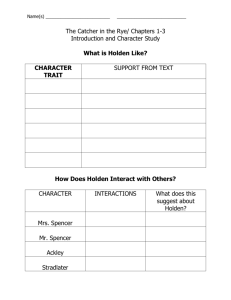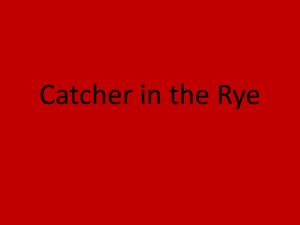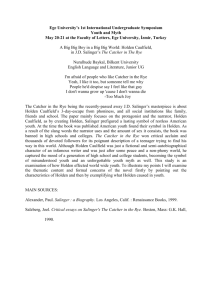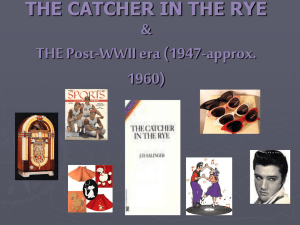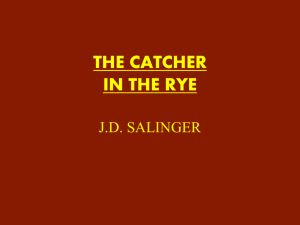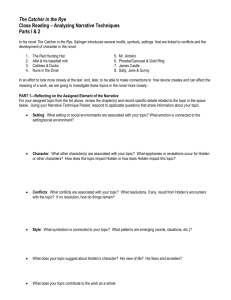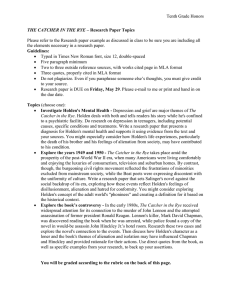Jerome David Salinger
advertisement
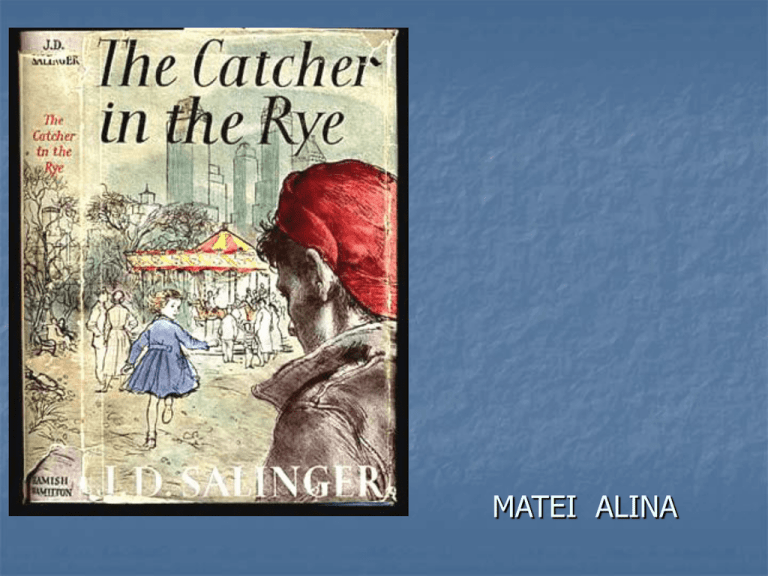
MATEI ALINA J.D. Salinger Jerome David Salinger, was an American writer who established his reputation on the basis of a single novel, The Catcher in the Rye, whose principal character, Holden Caulfield, epitomized the growing pains of a generation of high school and college students. The Book One of the most influential and very controversial book in the twentieth century was The Catcher in the Rye by J.D Salinger. The book’s main protagonist, Holden Caulfield has been subject to much criticism and analysis. To really understand who Holden represented, we must look into the novel itself find the life story of its mysterious author. Was The Catcher in the Rye just a book written to entertain? Or was it put on paper to serve some greater purpose or to prove some major point? The novel's protagonist, Holden Caulfield, has become an icon for teenage rebellion and defiance. Written in the first person, The Catcher in the Rye follows Holden's experiences in New York City in the days following his expulsion from Pencey Prep, a college preparatory school. Conflicts Holden vs. himself. Holden vs. society. Holden is the storyteller in Salinger's novel. He tends to have rebellious manner as reflected his isolation and solitude from society. Holden does not have any friends and cannot keep relationships. These is because he finds and exaggerates any negative aspect of all the people he knows or meet. Young readers see in Holden Caulfield a little bit of what they are, while older readers see in Holden a bit of what they once were. Ultimately, we all know that in some way, Holden is one of us. Some Values & Themes in Catcher in the Rye The need for inner direction and commitment to action The ability to feel compassion and to expect justice for all The recognition of superficial standards of behavior; the challenge of seeking positive change in one’s moral environment The novel offers realism in its use of language, its use of social criticism where it is due, and its presentation of real problems which adolescents face in the process of achieving maturity. The book also offers romanticism in its view of the innocence of childhood, its quest for truth, idealizing the past, and its emphasis on individual discovery and growth.
